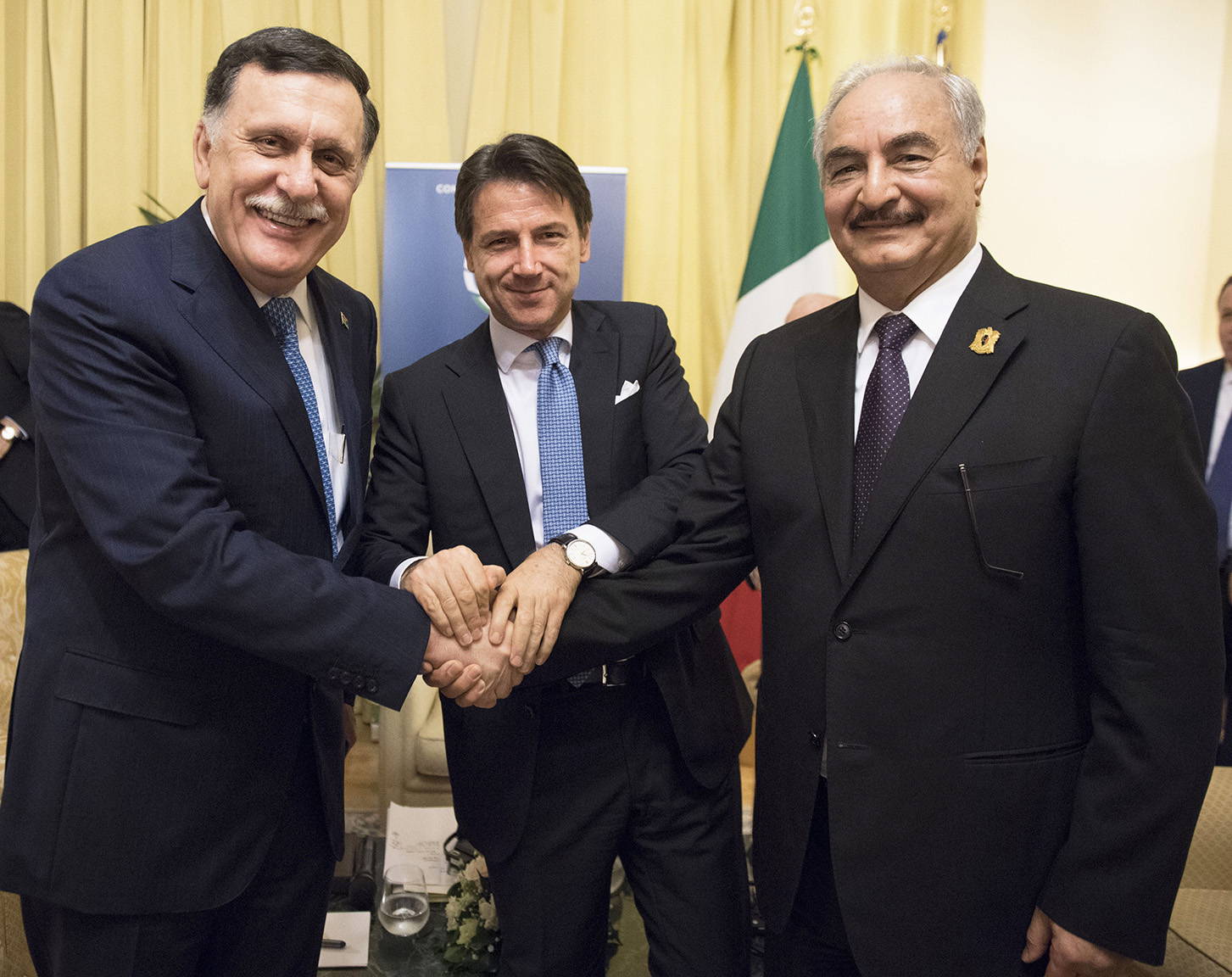Mediterranean dossiers tend to be inextricably interlinked – and extremely contentious. At this juncture, the global West is attempting to fix politically and militarily charged matters such as the Libyan conflict, as well as energy-related economic spats pitting countries, and even NATO allies, against each other.
The lack of a unitary Western consensus (and subsequent support) causes crisis-torn countries in Northern Africa and the Middle East to look elsewhere for concrete help. That’s where competing superpowers China and Russia chime in, respectively through strategic economic takeovers and energy and military ventures.
The lack of a common Western strategy is epitomised by the Libyan dossier. Despite it being under an UN-backed arms embargo, which both NATO and the EU are seeking to enforce, NATO member Turkey has been militarily supporting the UN-backed government headed by Fayez al Sarraj.
Meanwhile, Egypt and Russia (as well as NATO member France, albeit unofficially) have been backing the Eastern rebels led by General Khalifa Haftar.
Mr Sarraj’s government was only too happy to receive Turkish support, crucial in breaking the siege on Tripoli and driving the rebels out of the region. Conceivably, they were less happy to grant the Turks exclusive oil drilling rights as well as the chance to build a permanent military base on their land. Arguably, though, this solution was bred by the lack of effective Western support.
Meanwhile, Turkey and Libya’s forcibly linked energy interests are being contrasted by Greece and Egypt’s announcement of a joint economic exclusive zone, which they set up in defence of their own. This sits on top of a pre-existing conflict between Turkey and France over drilling rights in Cypriot waters.
France has assumed an adversarial stance against Turkey, breaking ranks with the rest of NATO (president Macron called it “brain dead”) and the EU. Recently, Greece and Turkey even came close to a military escalation at sea.
This mixture of explosive matters forced the less interventionist higher powers into action. The EU convened an emergency meeting and German chancellor Angela Merkel got on the phone with Turkish President Recep Tayyip Erdoğan to attempt defusing tensions, something that US secretary of state Mike Pompeo signalled is also in the interest of Washington.
The US has chosen not to pick a side, but it is trying to abate NATO internal tensions to avoid offering the West’s side to Chinese and Russian interference in the area. Tellingly, Mr Pompeo met with Greece’s foreign minister Nikos Dendias as well as Turkish foreign minister Mevlüt Çavuşoğlu.
According to informed sources, Turkey and Greece are supposed to start preventive de-escalation talks (via secondary diplomatic channels at first). This process was called for by Washington (and NATO) and Brussels (where all EU member states, minus France, aligned with NATO in pushing for bilateral talks).
Because of its strategic position, Italy is set to have a role in the upcoming developments. The country is essential to both Europe and NATO’s Southern flanks, and it hosts several US and NATO military bases (including the Allied Joint Force Command in Naples).
Formiche.net reached out to Dario Cristiani, geopolitical expert and fellow of GMF and IAI. He pointed out that Italy could become a strategic base for the Americans if they sought to intervene more in Mediterranean affairs. In this regard, the US might want to follow through with moving soldiers and African-dedicated corps (AFRICOM) from Germany to Naples, he added.
With core international offices boosting its authority, for instance, Italy could thus fulfil its potential role of axis for a great vertical integration between Europe and Africa in the context of the Green Deal, said the expert.
For that to happen, however, Italy must not “suffer” its geographical position and extend its clout in the area, argued Mr Cristiani. “The very fact that Italy is at the centre of the Mediterranean doesn’t make it a Mediterranean power,” he quipped, citing Marta Dassù, Senior Director of European Affairs at the Aspen Institute.
Mr Cristiani underlined that the matter of migration from North Africa to Italy (which Italian media and politicians focus on far more than on other dossiers) may be resolved through an all-encompassing gaze and a systemic plan.
He indicated Tunisia, which is currently undergoing a socio-economic crisis, as an example of a democratically virtuous country falling prey of Chinese investments merely because of lack of concern on the Western side. Given that an increasing number of migrants are departing from Tunisia, the connection is clear, but not openly addressed.
“The Americans really appreciate the Italian role in international missions, and they do not hide that they’d like a more decisive role for Rome as a foreign policy actor (partly to delegate some responsibilities). To take advantage of this political capital, however, we must persuade countries in the [North African] region to move coherently with the Italian priorities. In Libya, it seems as if things went the opposite way, and now Turks, Russians and Emirati are dealing the cards.”








